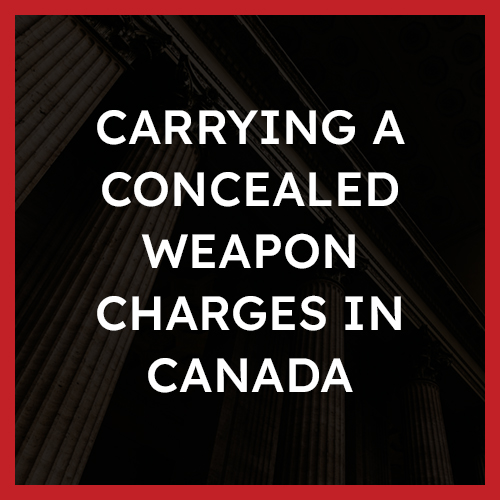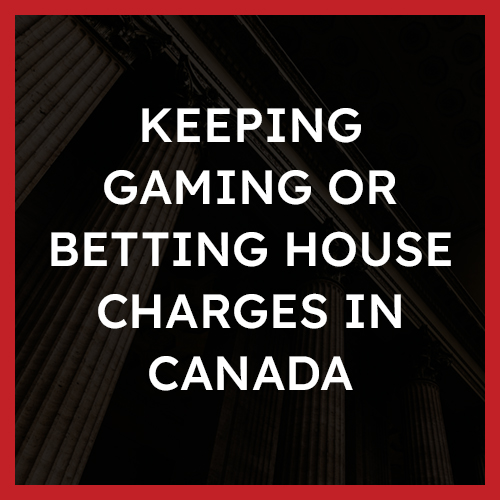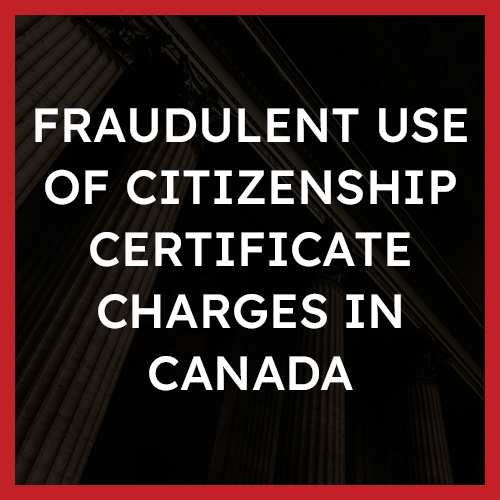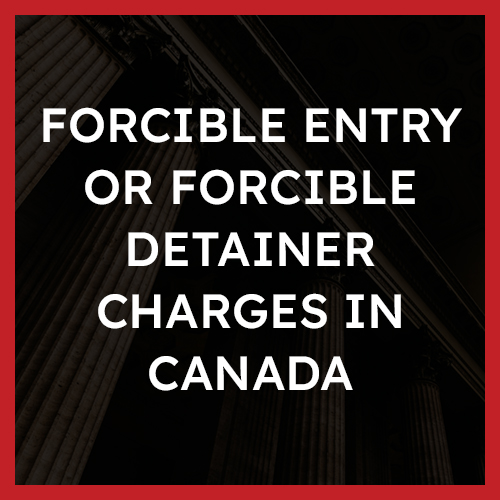Carrying a Concealed Weapon (s. 90) Charges in Canada: Offences, Defences, Punishments
What is Carrying a Concealed Weapon?
 Part III of the Criminal Code of Canada (Code) covers offences relating to “Firearms and Other Weapons”. The offence of Carrying a Concealed Weapon is covered under S.90 of the Code.
Part III of the Criminal Code of Canada (Code) covers offences relating to “Firearms and Other Weapons”. The offence of Carrying a Concealed Weapon is covered under S.90 of the Code.
Carrying a Concealed Weapon is generally prohibited in Canada. Section 90 of the Criminal Code prohibits carrying a concealed weapon unless authorized for a lawful occupational purpose under the Firearms Act. Section 20 of the Firearms Act, 1995 allows issuance of an Authorization to Carry (ATC) in limited circumstances. Concealment of the firearm is permitted only if it is specifically stipulated in the conditions of the ATC, as section 58(1) of the Firearms Act, 1995 allows a CFO to attach conditions to an ATC.
The offence of Carrying a Concealed Weapon prohibits an individual from possessing or carrying a weapon, a prohibited device or any prohibited ammunition while concealed.
- Forms of Possession are outlined in S4 of the Code.
- Weapons are defined by S.2 of the Code.
- Carrying a Concealed Weapon is a hybrid offence with a Crown election.
This means that depending on the circumstances of your case the Crown can elect to proceed by indictment or summarily.
Examples
Some examples of a weapon include the following:
- Handgun;
- Brass knuckles;
- Switchblade;
- Nunchakus;
- Knife;
- Machete;
- Pellet gun;
- Pepper Spray
To be concealed, an individual must hide the weapon so that it would not be observed or come to the notice of others – R. v. Felawka 1993 Supreme Court of Canada
“Concealing a weapon” does NOT include:
- Storing a firearm in the trunk of a motor vehicle
- Having a weapon in a pocket, backpack, purse, or on a beltline
- Storing a firearm in a manner mandated by the Firearms Act is not considered concealing
Defences
- Protection under the Canadian Charter of Rights and Freedoms
- Lack of Possession
- Lack of Intent
Punishments
- When the Crown proceeds summarily, the offence is punishable by a maximum of 2 years less a day imprisonment and/or a $5000 fine.
- When the Crown proceeds by indictment the offience is punishable by a maximum term of five years’ imprisonment
Overview of the Offence
As per S.90 of the Criminal Code of Canada:
90 (1) Every person commits an offence who carries a weapon, a prohibited device or any prohibited ammunition concealed unless the person is authorized under the Firearms Act to carry it concealed.
(2) Every person who commits an offence under subsection (1)
(a) is guilty of an indictable offence and liable to imprisonment for a term not exceeding five years; or
(b) is guilty of an offence punishable on summary conviction.”
Interpretation of S.90 of the Criminal Code of Canada
As such, under S.90 of the Code, the offence can be interpreted to be such that:
“Carrying” is not restricted to having the weapon on one’s person but can include having the weapon within reach in a vehicle for which he has care and control- R v Oickle, 2015 NSCA 87 (CanLII)
Further, for a weapon to be considered a “concealed” weapon, it must be proven that the accused hid the object so that it would not be detected, and that he knew the object to be a weapon- R v Felawka, 1993 CanLII 36 (SCC)
Actus Reus (The Guilty Act) and Mens Rea (The Guilty Mind)
The Crown must satisfy both the actus reus and the mens rea for a conviction of carrying a concealed weapon.
For this offence, in addition to the essential elements of jurisdiction, time and identity, the crown must prove the following:
- That the accused was “carrying” or in possession of an item
- Forms of Possession are outlined in 4 of the Code.
- That the item is a weapon. prohibited device or prohibited ammunition
- Weapons are defined by 2 of the Code:
- That the accused knew the item was a weapon, prohibited device or prohibited ammunition
- That the item was concealed by the accused
- That the accused intended to conceal the item
Defences
Protection under the Canadian Charter of Rights and Freedoms
The Canadian Charter of Rights and Freedoms (Charter) protects basic rights and freedoms that are essential to keeping Canada a free and democratic society.
The Charter may afford a defence to the offence of carrying a concealed weapon if one of your rights is violated either deliberately or inadvertently in the course of an investigation.
One of these Charter rights includes the right to be free from unreasonable search and seizure as outlined by S.8 of the Charter.
Often, the evidence in possession of a weapon for a dangerous purpose will result from a weapon taken from you by the police. If police obtained the weapon without a warrant or without adequate grounds for a warrant this can constitute a violation of your S.8 rights.
If this is the case, Defence counsel can file to have the evidence excluded under S.24(2) of the Charter. If the motion is granted, this means that the Crown would not be able to rely on that evidence to prove that you are guilty.
Other common Charter breaches include:
- Section 9- Right not to be arbitrarily detained;
- Section 10- Right to be informed of reasons for detention or arrest:
- Section 11- General: legal rights apply to those “charged with an offence”
- Section 12- Cruel and unusual treatment or punishment
Lack of Possession
If you are able to showcase that you did not in fact have possession of a weapon then the Crown is not able to satisfy the actus reus element and cannot secure a conviction against you. For example, if a knife was found in the trunk of a car that you were driving but that car was not yours, in this situation, you could argue that you had no knowledge of the weapon or no control over it.
Lack of Intent
The Crown needs to prove the mens rea element for the offence it is important to note that intention needs to precede the concealment of the weapon. Meaning the concealment of the weapon must have been premeditated.
Punishment
Summary Offence
When the Crown proceeds summarily, the offence is punishable by a maximum of 2 years less a day imprisonment and/or a $5000 fine.
Indictable Offence
If prosecuted by indictment, there is a Defence election of the Court under s. 536(2) to trial by the provincial court, superior court judge-alone or superior court judge-and-jury.
When the Crown proceeds by indictment the offence is punishable by a maximum term of five years imprisonment
Frequently Asked Questions
What is the penalty for carrying a concealed weapon in Canada?
The penalty for carrying a concealed weapon in Canada depends on if the Crown elects by summary or indictment.
When the Crown proceeds summarily, the offence is punishable by a maximum of 2 years less a day imprisonment and/or a $5000 fine.
When the Crown proceeds by indictment the offence is punishable by a maximum term of five years imprisonment
Can I carry a gun for self-defence in Canada?
Canada does not allow its citizens to carry – or even own – firearms for the purpose of self-defence against human beings.
A weapon can be used for self-defence, however, the use of a weapon in defending yourself can only be used to defend yourself from a threat, or a force of threat, that you reasonably believed would be used against you.
This means that if you are in a situation where you reasonably believe there is a force, or a threat of force, that will be used against you, and you use a weapon to defend yourself from that force it may be acceptable. However, buying weapons for the purpose of using them in situations where you do not have a defensive purpose is not legal.
Additionally, in relation to firearms, the use of firearms is generally prohibited for the defence of self or property.
What is considered concealed carry in Canada?
“Carrying” is not restricted to having the weapon on one’s person but can include having the weapon within reach in a vehicle for which he has care and control- R v Oickle, 2015 NSCA 87 (CanLII)
For a weapon to be considered a “concealed” weapon, it must be proven that the accused hid the object so that it would not be detected, and that he knew the object to be a weapon- R v Felawka, 1993 CanLII 36 (SCC)
Published Decisions
R v Felawka, 1993 CanLII 36 (SCC)
In this case, the accused was charged with carrying a weapon for a purpose dangerous to the public peace and with carrying a concealed weapon. The accused had been target shooting with a friend and was taking transit to return home. While in transit the accused had a .22 calibre rifle wrapped in his jacket.
Upon arrest, the police found a clip with one live round in the rifle and a clip with a live round in his pocket
Here, the mens rea of the offence was clearly established. The accused, knowing the rifle was a weapon, took steps to hide it from observation by others. His excuse that he concealed his rifle in order to avoid alarming the passengers on the train cannot constitute a defence.
You can read the full decision here.
R v. Huete, 2008 BCSC 1694 (CanLII)
In this case, on appeal, the Supreme Court of B.C. upheld a conviction for a man charged with carrying a concealed weapon.
The charge resulted when a man was stopped near the scene of an assault; officers observed a large object protruding from his sweatshirt, and a pat down determined that the object was a machete.
At his trial, the judge concluded that something the size of a machete is not intended for peaceful purposes and would clearly intimidate and scare members of the public (and as there was no tropical underbrush in the area that needed to be removed), the machete would be considered to be a concealed weapon.
You can read the full decision here.
R v. D.A.C., 2007 ABPC 171 (CanLII)
In this case, a young man was convicted of possession of a weapon for a dangerous purpose and carrying a concealed weapon after a bus driver observed a knife protruding from his front pocket which was an ornate Japanese-style dagger. The accused indicated that he was merely transporting the weapon to his uncle’s house because his father did not want it stored in his home. The accused was found not guilty of carrying a weapon for a dangerous purpose; however, he was found guilty of carrying a concealed weapon.
You can read the full decision here.
Contact Us
If you have been charged with a criminal offence, visit our location pages to contact our team.
About The Author
Ask A Question
We endeavor to respond to questions within 24 hours. If your matter is urgent, please call our office or submit a request for a free consultation.







